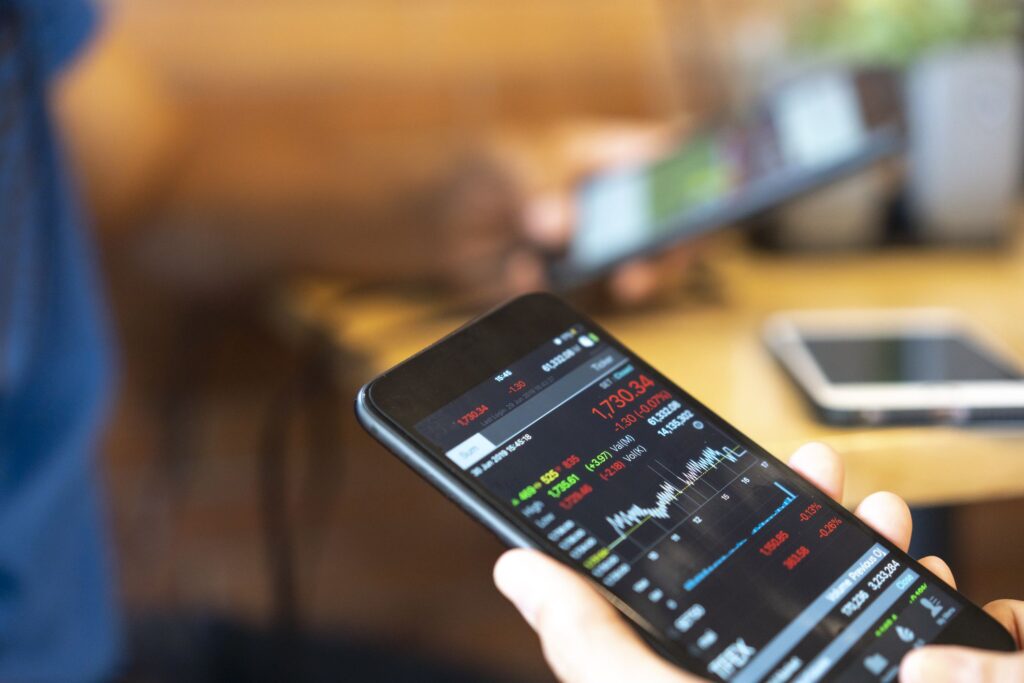Both have their pros and cons. Should you trade commodity futures or forex? Commodity futures tend to be more volatile and require higher capital commitments, while forex markets are more liquid and offer lower transaction costs. Ultimately, the best approach for you will depend on your investment goals, risk tolerance, and trading style.
Here’s a closer look at the ten key differences between FX and commodity trading
Volatility
Commodity prices can be very volatile, making it challenging for novice traders to make money. In contrast, FX prices are much more stable, making it a safer option for beginners.
Capital requirements
To trade commodity futures, you typically need to commit a significant amount of capital – as much as $25,000 per contract. In comparison, forex traders can get started with a lot less money – as little as $100.
Liquidity
FX markets are much more liquid than commodity markets, which means you can quickly get in and out of trades at low costs. It is crucial if you’re looking to make quick profits.
Risk
Commodity trading can be hazardous, especially if you don’t understand the underlying market dynamics. Forex trading is less risky, as currencies are generally less volatile than commodities.
Leverage
Both commodity and forex trading offer leverage, which allows you to trade with more money than you have in your account. The amount of leverage you can get in forex markets is much higher – as much as 50:1.
Margin requirements
When trading on margin, you are required to maintain a certain level of equity in your account (known as the margin requirement). Commodity margins are typically higher than forex margins, meaning you’ll need to commit more capital when trading commodities.
Contracts
In commodity trading, you usually trade futures contracts, which are agreements to buy or sell a particular commodity at a set price at a future date. Forex trading doesn’t involve contracts but rather the direct purchase or sale of currencies.
Expiration dates
Commodity futures contracts have expiration dates, at which point the contract is settled. You either take delivery of the commodity or receive/pay the cash difference between the contract price and the spot price. Forex trades don’t have expiration dates – you can hold a position for as long as you want.
Trading hours
Commodity markets are open for trading around the clock, while forex markets are only open during specific hours (usually 4 am-8 pm EST). It can make it challenging to manage your positions if you have a full-time job.
Costs
Both commodity and forex trading involves commissions and spreads, but the spreads tend to be broader in commodity markets. It can make it more expensive to trade commodities.
News
Commodity prices are susceptible to news events, such as weather reports and economic data releases. It can make it challenging to trade commodities profitably unless you understand the underlying market dynamics. Forex prices are also affected by the news but to a lesser extent.
Taxes
Commodity futures are subject to capital gains taxes in the US, while forex trading is not. It can make forex trading more tax-efficient for US investors.
Which is right for you?
As with most things in life, there is no one-size-fits-all answer to this question. It depends on your investment goals, risk tolerance, and trading style.
If you’re looking for a high-risk, high-reward investment opportunity, then commodity trading may be for you. However, FX may be a better option if you’re a beginner or don’t want to risk too much money.
In conclusion
FX trading is a safer option for beginners, while commodity trading can be more profitable and riskier. It’s essential to understand the critical differences between these two types of trading before deciding which one is right for you. You can find more information about FX trade in Singapore here https://www.home.saxo/en-sg/products/forex.
Hopefully, this article has helped you decide which is the best way to get started in the world of commodities and/or forex trading. Good luck.

